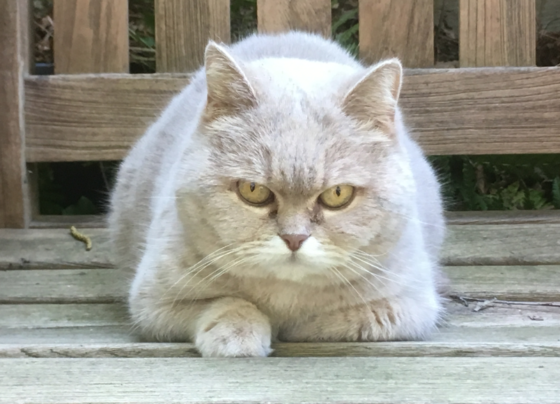Universities research role of cat in virus spread, keep moggie at home, they say


Three Dutch universities are joining forces to find out if cats play a role in the spread of coronavirus following recent events at mink farms where a number of cats were found to have had the disease, the Volkskrant reports.
Researchers from Utrecht, Rotterdam and Wageningen universities will be testing some 150 cats belonging to registered coronavirus patients. It is already known that people can contaminate cats but so far the opposite has not been proven, professor of veterinary science Arjan Stegeman told the paper. ‘You want to avoid being left at the tail end of the outbreak with a reservoir of the virus that you have overlooked,’ Stegeman said.
The cats will be given a blood test to see whether they has made antibodies and a swab which will tell scientists which variant of the coronavirus they are dealing with.
The research follows events at three mink farms in the province of Brabant where semi-feral cats roaming the premises were found to have had the virus and where one member of staff may have caught it from a mink. Testing is being carried out at all 140 mink farms which are out of bounds for visitors.
There is no record of previous cases in which animals have passed on the virus to a human being and both the WHO and Dutch health institute RIVM maintain that the chance of contagion is very small.
Risk
But, said Stegeman, it is advisable to keep cats from wandering so they won’t come into contact with other cats and leave their faeces to mark their territory.
The investigation may include visits to animal shelters where cats live in close proximity to each other. Cats will also be contaminated in the lab to see how long it takes to spread to other cats. The end result will be a definitive description of the epidemiology of cats, researcher hope.
Dogs too can get the virus but experiments have shown that they are less susceptible than cats, the paper said.
Other experiments, on pigs, ducks and chickens seem to point to a biological impossibility of catching the virus. ‘It is probable that these animals have differently shaped cell receptors which are not a good fit for the virus,’ Stegeman said.
Thank you for donating to DutchNews.nl.
We could not provide the Dutch News service, and keep it free of charge, without the generous support of our readers. Your donations allow us to report on issues you tell us matter, and provide you with a summary of the most important Dutch news each day.
Make a donation